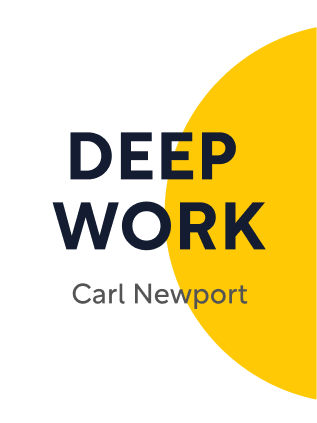

This article is an excerpt from the Shortform book guide to "Deep Work" by Cal Newport. Shortform has the world's best summaries and analyses of books you should be reading.
Like this article? Sign up for a free trial here .
What are the best deep work tips? How can these tips help you reduce the amount of shallow work you do?
Groundbreaking ideas and meaningful progress come from deep work, not shallow work. Apply these deep work tips and you will notice an increase in your work productivity.
Continue reading for tips on how to practice deep work.
Deep Work Tips
Here are several tactics to improve your productivity. Use these deep work tips to start changing right away.
- Consider collaborating in shared deep work. Having a thinking partner can push your thinking to the limit.
- “Make a grand gesture” – commit an investment to jumpstart the activity.
- If your deep work space costs you money, you will feel more compelled to use it.
- Examples:
- While writing Harry Potter, JK Rowling rented an expensive hotel room to escape her home’s distractions.
- Another writer booked round-trip flights to Tokyo to write a manuscript without the distractions of normal life.
- The ideal office floor plan: hub and spoke.
- The spokes contain quiet private places for people to do deep work. The hubs allow communal work.
- People spend time in the private places by default. As they walk down the spokes to the hubs, people will serendipitously bump into each other.
- In contrast, in the common open office model, workers spend time in the distracting open floor as the default. Meeting rooms are the occasional deep work area that workers need to escape to.
Make Deeper Work a Ritual
While you know in our heads that you should be spending time on deep work, distractions get in the way. Distractions are things that you’d rather be doing than deep work – like eating food, sleeping, or browsing the Internet.
When you try to overcome your distractions, you use willpower to get back on task. But you have a finite amount of willpower each day. If you have to continuously force yourself to switch back from distractions, you’ll deplete this willpower, at which point you’ll be more vulnerable to distractions. This limits you from reaching the maximum of your deep work potential. Instead, if you make deep work a ritual or habit, you no longer have to employ your willpower. Deep work happens automatically as a routine, and there are no distractions that you have to will yourself to overcome. In turn, this lengthens the time in which you’re doing deep work, and it reduces the rate of failure.
Building an Environment for Deep Work
In addition to scheduling time for deep work, you should also build your environment to be most supportive of deep work. Suggestions:
- Choose where to do deep work
- Ideally, choose a place that you go to ONLY for deep work (like a conference room, the library, or an office in your home). In this place, you will do only deep work and no shallow work. Keep your shallow work in another place dedicated only for shallow work. Compartmentalizing your location this way will cement the habit of deep work more strongly.
- Create a distraction-free environment
- Remove your most appealing distractions. Shut down Internet connectivity.
- Shut off your phone and put it in a place that’s annoying to reach. If you must use the Internet, consider installing website blockers in your web browsers.
- Add supporting materials
- Add things that will make your deep work more focused, like starting with coffee, having enough food, integrating light exercise.

———End of Preview———
Like what you just read? Read the rest of the world's best book summary and analysis of Cal Newport's "Deep Work" at Shortform .
Here's what you'll find in our full Deep Work summary :
- How deep work is critical for performance and productivity
- Why focus is like a mental muscle
- Why willpower isn't as good as a ritual






